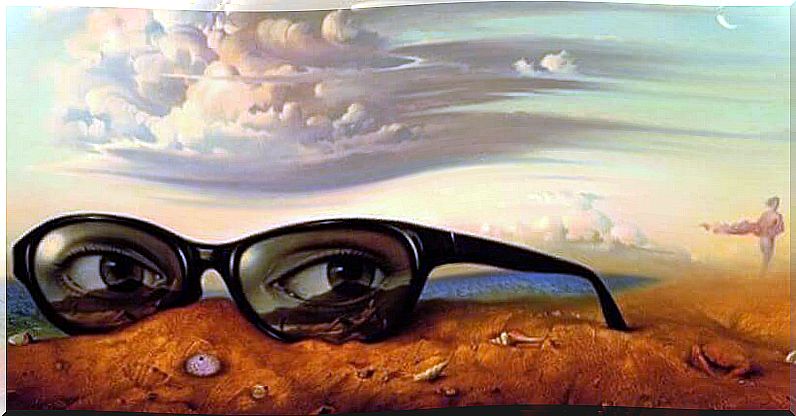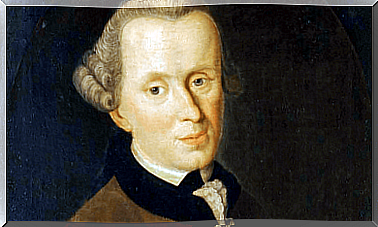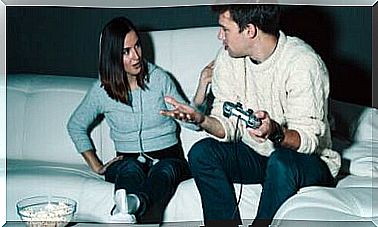What Is Social Knowledge?

Any one of us, through superficial observation, can see that social phenomena are of a very different nature from physical phenomena. Furthermore, not only do we see them differently, we also act differently towards them. But what is social knowledge really? And how do we build this knowledge in our mind? Many psychologists have tried to find answers to these questions throughout history.
The study of social knowledge is a very broad and highly relevant research field. This is because the interest in this field of study is varied and can be considered from many points of view (psychological, educational, epistemological, …). In this article, we will talk about two specific aspects: the construction of representations of social reality and the nature of social phenomena.
Construction of social knowledge
An essential aspect of social knowledge is understanding how it is constructed . People, when observing how the world works, build representations or models that explain what we perceive. This serves us to make sense of what happens outside us and to create our own models, very useful as a framework for action.
In fact, representations make it possible to anticipate what will happen and act accordingly. It is simple to infer the great value of our ability to create and adjust valid models. For example, as we understand a representation of how electricity works and the harm it can do us in some situations, we discard the idea of putting our finger in the socket.

A fundamental aspect of the human species is its social environment. Thanks to life in society we were able to adapt to a hostile environment, despite the natural deficiencies of human beings. Therefore, it is logical to think that we must have a large repertoire of social models that allow us to know how to act in our daily lives in the social context.
Within these representations or models of society, which is what is called social knowledge in psychology, we can find three broad categories:
- The knowledge of others and of yourself. Through experience with others, we create models that allow us to know people and ourselves. Knowing the minds of others, that is, knowing how they think, helps us to predict their actions. Studies on the so-called “theory of mind” can fall into this category.
- Moral and conventional knowledge. The individual assimilates the rules or norms that regulate the relationships he has with others. Knowing them allows you to adapt to the community and get along with others. In this sense, psychologist Lawrence Kohlberg studied the development of morality in human beings.
- The knowledge of institutions. An essential aspect of social knowledge is understanding the roles people play within a society. Here we talk about the representations we have about how a merchant, a boss, a political representative, etc. behaves. This helps us to carry out any social act without needing to know what the person we are dealing with is like, due to the fact that we know the role he should play.
Nature of social phenomena
Although it seems obvious that there are differences between a physical phenomenon and a social phenomenon, making these differences explicit becomes complicated. You can define physical events as objective and independent of the individual and social events as subjective and dependent, but from a socio-constructivist perspective this distinction is meaningless.
An attempt to understand how social phenomena are composed is what the philosopher John Searle proposes to us . To explain the representations about the social world, he presents us with three elements: (a) the constitutive rules, (b) the attribution of functions and (c) the collective intentionality.
Just as a game is made up of rules, Searle says so are institutions. And the importance of these norms is that without them neither games nor institutions could exist.
For example, to play chess there is a regulation that tells us what we can and cannot do. If these standards did not exist, the game would have no meaning. For the same thing happens with our institutions. They exist insofar as we say they exist. A clear example is money. There are rules that say how much each note is worth and under what conditions it can be exchanged. If the rules didn’t exist, the money would be just metal or paper.

When we speak of the assignment of roles, we are referring to the intention to assign roles to objects or people. We say that chairs are made for sitting and forks are made to assist with eating. But these are not intrinsic properties of objects. The function is imposed by the human being. This attribution is, to a large extent, collective, which produces socially shared knowledge regarding the role of people and objects in society.
And finally, it is important to understand the role that collective intentionality plays. This means the human being’s attempt to share beliefs, desires and intentions, which allows us to act within a context in which cooperation is possible, thus managing to live in an adaptive and safe society for all individuals.
Social knowledge helps us understand and know how to act within society. Your study has great added value and allows us to act on many levels. For example, with regard to education, understanding this serves to know which models or pedagogical measures we should take when creating a fairer and more cooperative society.









